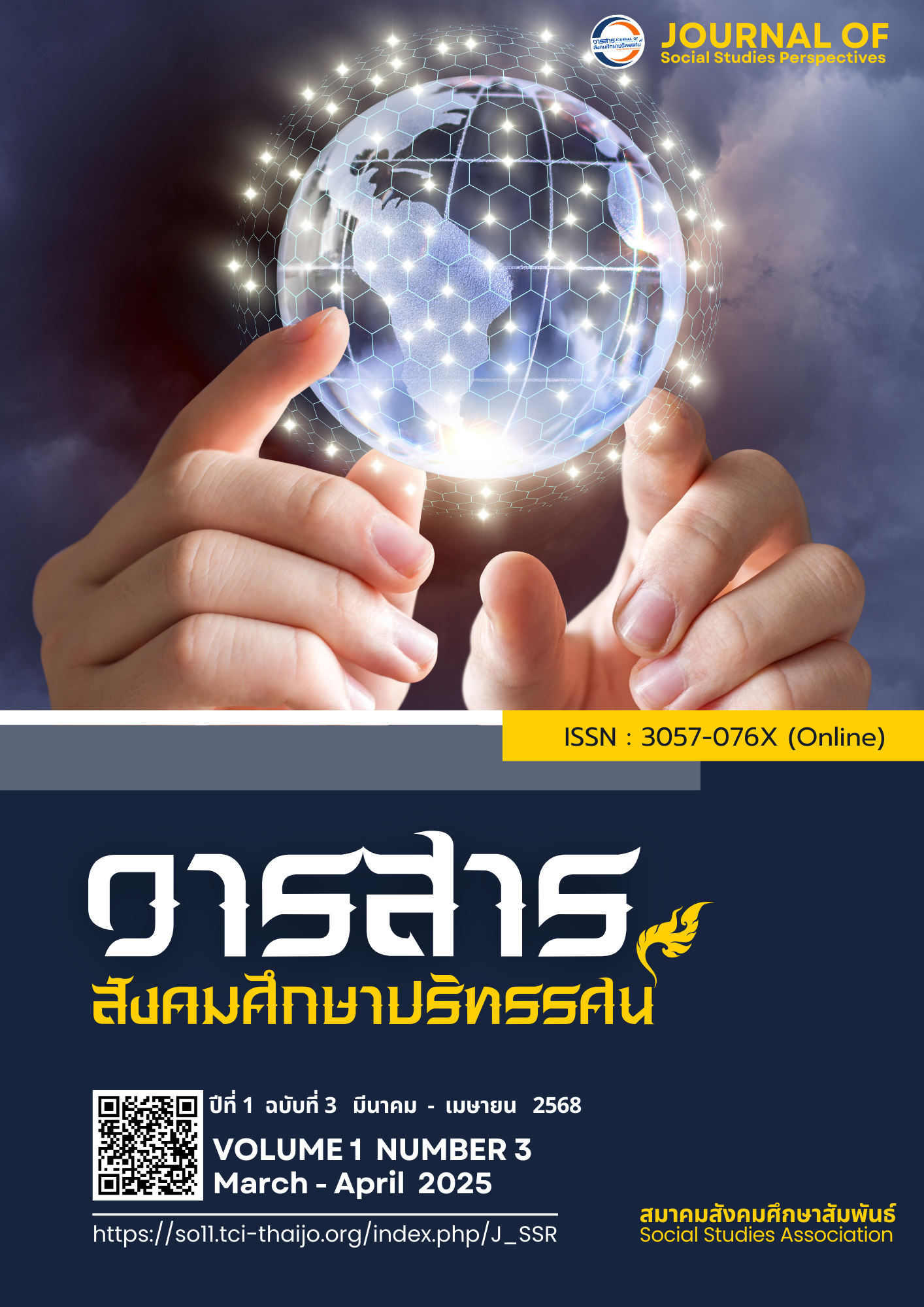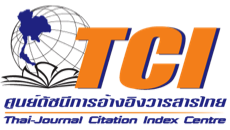DEVELOPMENT OF A BUSINESS WEBSITE DEVELOPMENT SKILL TRAINING KIT TO PROMOTE INNOVATION WITH THE KRAYAT BUSINESS GROUP OF STUDENT IN THE HIGH VOCATIONAL CERTIFICATE PROGRAM IN DIGITAL BUSINESS TECHNOLOGY,PHICHAI INDUSTRIAL AND COMMUNITY EDCATION COLLEGE
DOI:
https://doi.org/10.64186/jsp1442Keywords:
Development Skill , Developing a business website , InnovatorAbstract
This research aims to: 1) Study the needs and necessity of developing a training kit for website development in business. To promote innovators in students, 2) To develop a training kit for website development skills in business to promote student innovation. This is a quantitative research. The sample group is 1 director, 2 deputy directors and 32 teachers and students at the higher vocational certificate level. Pichai Vocational College There are 28 students enrolled in the business website development course in the first semester of the 2024 academic year. The researcher used purposive sampling. There are 2 types of research instruments: 1) questionnaire, 2) test . Data were analyzed by using Percentage, Percentages, Mean, Standard Deviation, and Required Modified Priority Needs Index (PNI Modified). The results of the research are as follows
1. It was found that the top 5 Modified Priority Needs Index (PNI Modified) were 1. initiative skills (PNI Modified = 0.404), 2. Questioning skills (PNI Modified = 0.361), 3. Observation skills (PNI Modified = 0.355), 4. Experimentation skills (PNI Modified = 0.331), and 5. Network building skills (PNI Modified = 0.269). 2.The effectiveness of the website development skills training kit in business to promote student innovation. Overall, the value is equal to 85.43/86.67.
Knowledge/discovery from this research teaching using a training kit to develop website development skills in business. To promote innovators in students. Instructors must study and analyze the curriculum and course objectives. Course competencies Course description that will be taught to understand. Teachers should be educated on community needs and integration of teaching and learning in the digital age. Including the application of AI into research. In order to be able to give good suggestions to students in the future.
References
Bank, K., Khumpai, et al. (2020). Format of online teaching and learning in the field of
engineering industry on the new normal during the COVID-19 crisis.
Mahachulalongkorn Journal, 8(3), 398-399.
Bunchom, S. (2010). Basic research (7th printing). Bangkok: Suriviriyasan.
Chaiyong, P. (1977). Teaching media system. Bangkok: Chulalongkorn University Press.
Dyer, J., Gregersen, H., & Christensen, C. M. (2011). The innovator’s DNA. Harvard Business
School Publishing Corporation.
Jiradej, M. (2008). Development of a training kit for thinking skills from printed media for
students Mathayom 3, Wada Thong Phleng School, Khlong San District Office,
Bangkok.
Jirarat, W. (2024). Guidelines for managing collaborative networks in the educational
management of special education centers, network group 9, under the Office of
Special Education Administration. Journal of Educational Science, Srinakharinwirot
Khon Kaen Campus, 25(2).
Kanokpitch, R., et al. (2021). Development of basic scientific skills in observation using
project-based learning methods in kindergarten 1 students. Hat Yai University.
Kanthicha, J. (2024). Developing academic achievement and experimental skills using learning
management 5-step knowledge inquiry model (5Es) combined with a science
experiment on the separation of substances. Mahasarakham University.
Khwansakul, U. (2021). Developing creativity using a teaching model for future problem-
solving processes according to Torrance's concept. Knowledge integration course.
Mahidol Wittayanusorn School Public Organization.
Kolb, D. A. (1984). Experiential learning: Experience as the source of learning and
development. New Jersey: Prentice-Hall.
Koson, P. (2021). Strategies for developing innovativeness of secondary school teachers.
(Doctor of Philosophy Thesis). Maha Sarakham University, Maha Sarakham.
Marut, P. (2017). Coaching paradigm to enhance creativity and innovation skills. Charan
Sanitwong Printing.
Office of the Basic Education Commission. (2019). Developing students to be inventors from
lessons on learning management for teachers who create and innovate. Bangkok: N60
Rattana Trading.
Pachara, S. (2020). Developing initiative in computer work using Sampson's practical skills
teaching model of students in Grade 3. Thesis in the field of curriculum and teaching.
Dhurakij Pundit University.
Pongsuwat, S. (2021). Development of achievement in research-based teaching (RBL) to
develop life skills of students at the Vocational Certificate level (Vocational Certificate
in the field of Electricity. Social Studies Review Journal, 1(January - February).
Preeda, Y. (2018). 4 types of innovators. National Innovation Agency.
Ratchaneekorn, H. (2020). 6C1T: Navavithi for the development of history teachers'
characteristics 4.0 (1st edition). Bangkok: Walk on Cloud Co., Ltd.
Sanpong, I. (2019). Educational institution administration in the digital age. Academic Journal
of Eastern University of Management and Technology.
Schoolwires. (2013). The flipped classroom: A new way to look at schools. [online]. Retrieved
May 2013.
Sittichok, S. (2021). Guidelines for developing academic networks of educational institutions.
Under the Lampang Primary Educational Service Area Office, Area 2. Thesis in
Educational Administration. Sukhothai Thammathirat Open University.
Suphanika, L. (2024). Developing mathematics skills with a set of science experiment
activities for early childhood children. Department of Early Childhood Education,
Faculty of Education, Loei Rajabhat University.
Thanchanok, P. (2024). Results of developing thinking skills using questioning techniques. A
story about following in the footsteps of the medicine doctor Prachin. Additional
courses for Prachinburi Suksa of Mathayom 6 students at Kabinwittaya School,
Prachinburi Province.
Tuen, T. (2020). Educational design in the new normal: Impact from the COVID-19 outbreak.
Teachers Council of Thailand Journal, 1(2), 1-10.
Wagner, T. (2012). Creating innovators: The making of young people who will change the
world. Scribner.
Wagner, T. (2012). Creating innovators: The making of young people who will change the
world. Scribner.
Downloads
Published
How to Cite
Issue
Section
Categories
License
Copyright (c) 2025 Journal of social studies perspectives

This work is licensed under a Creative Commons Attribution-NonCommercial-NoDerivatives 4.0 International License.
The article is published under the Creative Commons Attribution-NonCommercial-NoDerivatives 4.0 International (CC BY-NC-ND 4.0) license, which allows others to share the article while giving appropriate credit to the author. It prohibits the use of the article for commercial purposes or the creation of derivative works. Any other reuse or reproduction requires permission from the journal.










